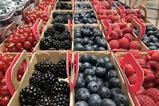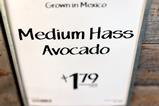Italian marketer VIP and Dutch importer Eosta report significant growth in demand for key products like apples, grapes, and mangoes
The market for various organic fruits and vegetables is “booming”, according to several of the produce industry’s leading suppliers.
Gerhard Eberhöfer, organic product manager at Italian apple company VIP, says it’s been an “exceptional” summer for the group’s organic fruit sales.
“The availability of organic apples in Europe was very limited, and VIP was among the few players able to meet market demand with a consistently high-quality product, thereby fending off the entry of organic apples from Southern Hemisphere countries,” he explains.
VIP has managed to establish continuous supply throughout the year, which means that it can market “limited but well-planned” volumes of varieties like Golden Delicious and Gala from the point of harvest all the way round to when the next season begins.
That model, says Eberhöfer, worked perfectly in 2023/24. “In my 23 years working with VIP’s organic produce, I have never seen such impeccable timing,” he comments. “The last kilo from the previous season was gone just as the new harvest began.”
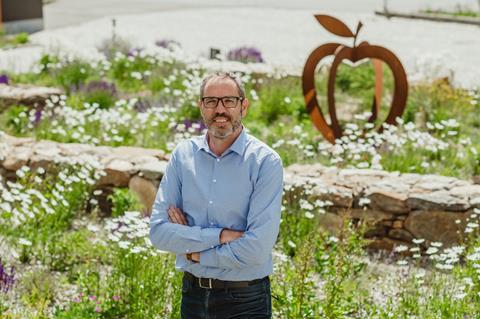
Dramatic growth
In the Netherlands, meanwhile, organic specialist Eosta says it has seen some dramatic market growth for particular product categories. One such example is organic grapes, sales of which are said to have risen 150-200 per cent in the past decade – compared with growth of no more than 30 per cent for conventional grapes.
“Not surprising,” the importer says, “given the growing interest in pure and natural products and a focus on biodiversity conservation. Organic grapes mean less water consumption and CO2 emissions and healthier soil.”
It’s a similar story for mangoes too. While the market for conventional mangoes grew between 8 per cent 20 per cent between 2013 and 2023, growth in the market for organic mangoes has apparently been in the order of 140-180 per cent.
As a result, Eosta has developed a programme of supply out of Ecuador and Peru that begins in September.
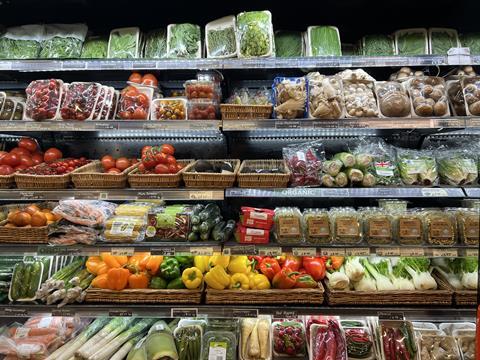
Growing interest
In terms of value addition in the fresh produce business, organics still represents a massive opportunity for those with the production scale and distribution capacity to make it viable.
This time last year, Dutch company Fruitmasters teamed up with Belgian group Coöperatie Hoogstraten to form BioMasters, an organic produce marketing platform that has reportedly enjoyed “stable growth” and the support of “enthusiastic” growers in its first year.
And earlier this week, two of Spain’s leading citrus companies – Castellón-based Grupo Clasol and Andalusian producer Sol y Sabor – established a new joint venture called Clasol Bio to grow and supply exclusively organic citrus.
A recent study by the Research Institute of Organic Agriculture (FiBL) showed that organic food sales in Europe have grown steadily in recent years, outpacing the overall food market.
Total organic food retail sales, according to the FiBL survey, amounted to almost €135bn in 2022 – the most recent year for which the organisation had data.
In the US, the largest single country market for organic food, sales reached €58.6bn in those 12 months, followed by Germany (€15.3bn), China (€12.4bn), and France (€12.1bn).
Sales in the EU, meanwhile, totalled €45.1bn in 2022, and more widely across Europe as a whole they were €53.1bn.
In the UK, new research by The Soil Association suggests lots of younger consumers want organic food to give them health and happiness.
Despite recent increases in the cost of living, almost half of 25–34-year-olds surveyed said they felt happier when buying organic items, with many saying they believed it made a difference for the environment.
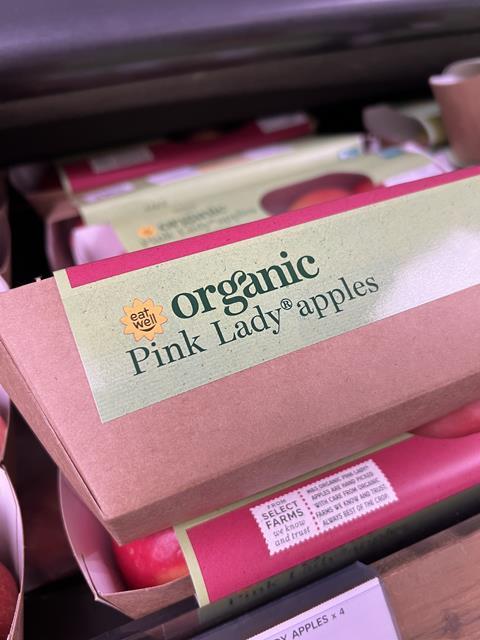
Right direction
The future for organic sales is by no means certain, however. Market growth has been steady, if not dramatic, with no double-digit increases recorded in 2022. Canada registered the biggest growth (9.7 percent), followed by Japan (8.4 per cent), and Estonia (6.0 per cent).
And it’s true that inflation has tempered overall market growth, a trend that was noted in the EU during 2023 by the European Council.
https://www.agriland.ie/farming-news/eu-facing-worrying-drop-in-demand-for-organic-sales/
But organic retail sales have certainly come a long way in the past decade. According to the Council, in the EU they were almost double in 2020 compared with 2015, while the bloc’s total area under organic farming grew by 41 per cent.
The EU has targeted a 25 per cent share of total farmland for organic production by 2030. And earlier this month, the US Department of Agriculture offered a major boost to the country’s organic fresh produce industry when it released funds of around US$120m to support the development of high-quality and organic fruits, vegetables, nuts, dried fruit, plants and flowers.
Across Europe and North America, organic is very much part of the plan when it comes to food and in particular fresh produce. The overall direction of travel for this part of the food market, it seems, looks assured.



